Brake calipers are an essential component of any vehicle’s braking system. The calipers are responsible for housing the brake pads and applying pressure to the rotor, ultimately slowing down the car.
Over time, calipers can become corroded, leading to decreased performance and potential safety hazards. To prevent this from happening, many car enthusiasts turn to WD40 as a solution to their caliper problems. However, before you grab a can of WD40 and start spraying, it’s essential to understand this method’s potential risks and benefits.
We’ll explore whether or not it’s safe to spray WD40 on your brake calipers, the possible consequences, and the other options for maintaining your brakes. We’ll also discuss the importance of proper brake maintenance and how to identify when to replace your calipers.
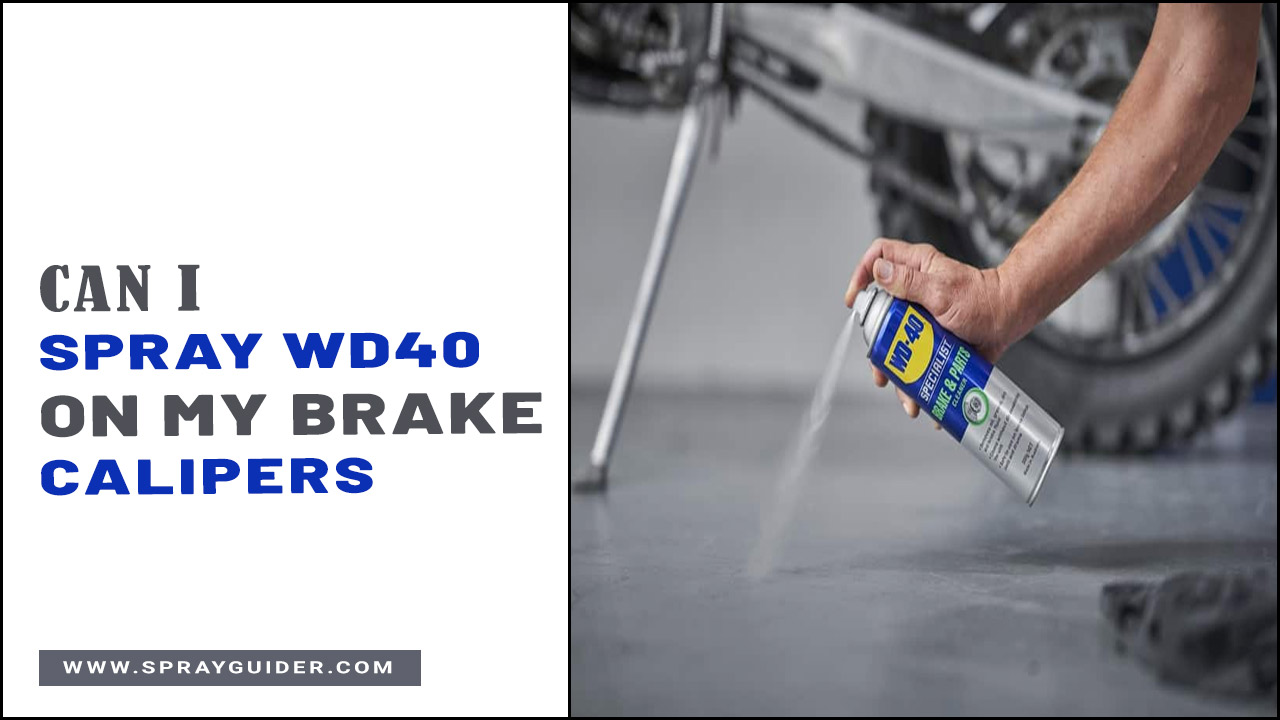
Can I Spray WD40 On My Brake Calipers? Expert Advice
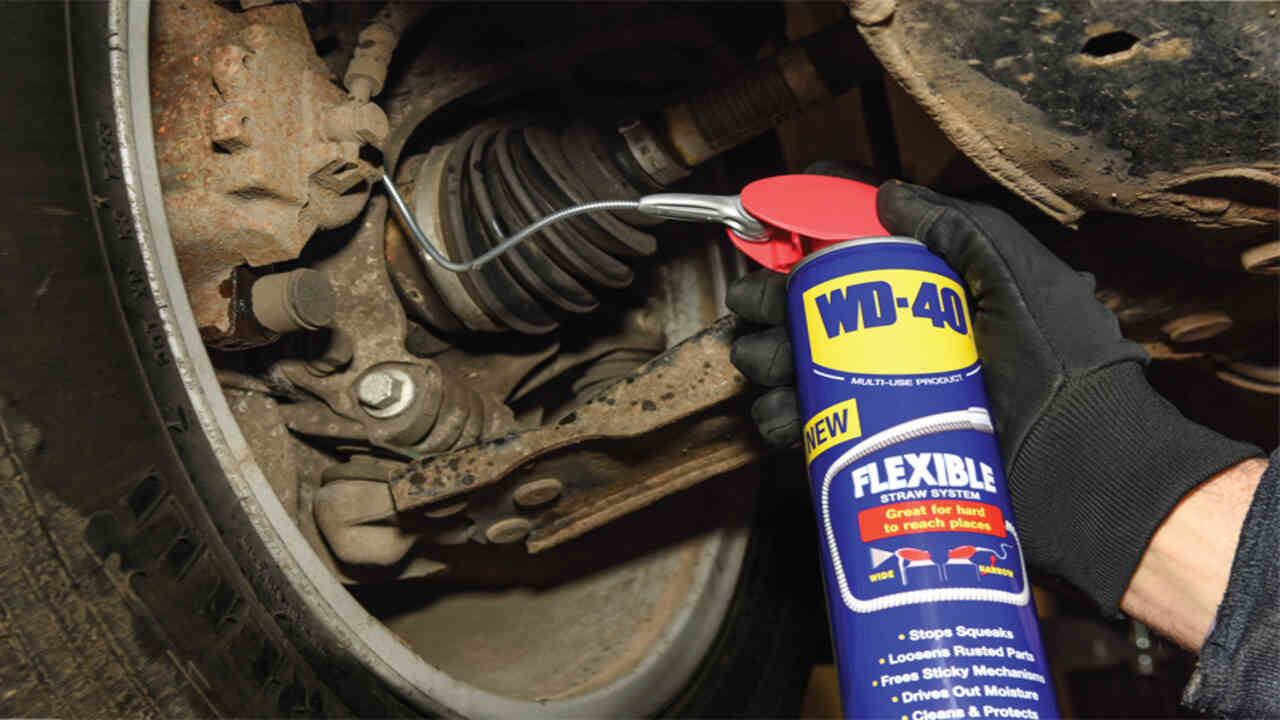
We do not recommend spraying WD40 on your brake calipers. While WD40 can be helpful for many purposes as a versatile lubricant, it is not designed for brake systems. (There is no passive voice in the original sentence.) . Brake calipers require a specific type of lubrication that is heat-resistant and compatible with the rubber components of the brake system.
Using WD40 on your brake calipers could potentially cause damage to the rubber seals and boots, leading to leaks and compromised braking performance. It is always best to consult with a professional or refer to your vehicle’s manufacturer guidelines for proper maintenance and lubrication of your brake system.
What Are The Risks Of Spraying WD40 On Brake Calipers?
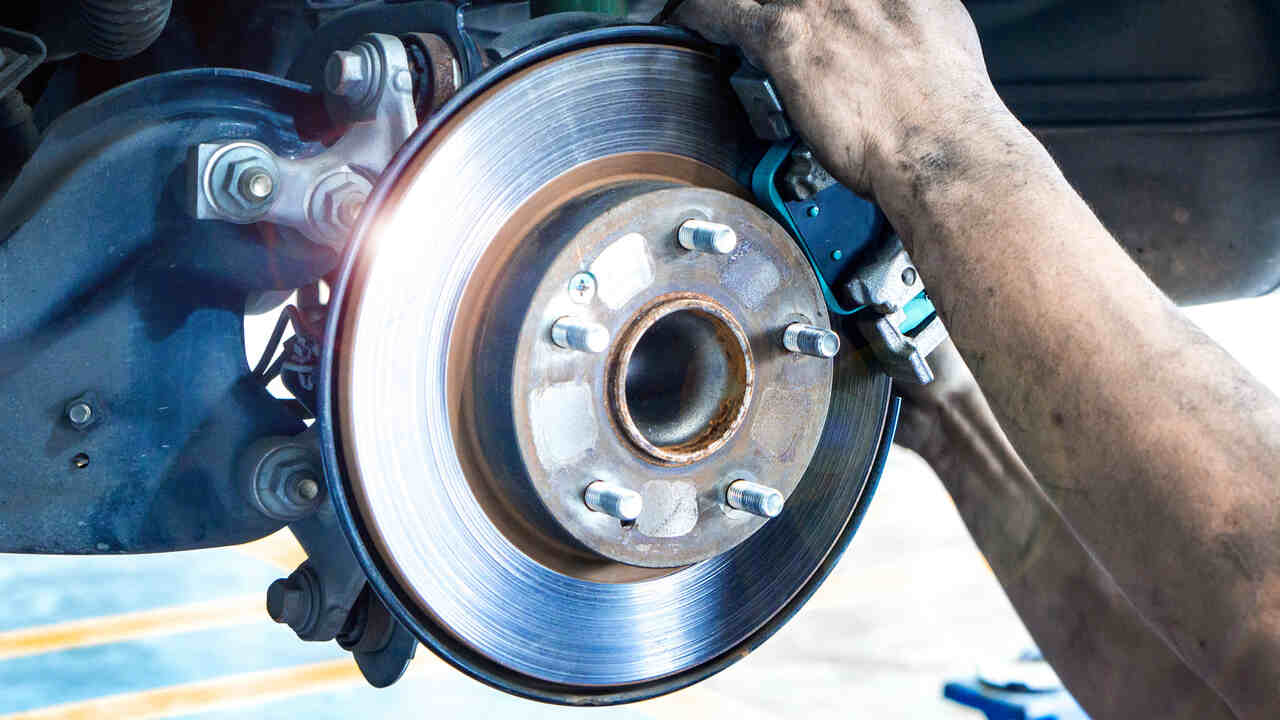
Experts generally do not recommend spraying WD40 on brake calipers as it can be risky. WD40 is a lubricant with specific designs to loosen rusted or stuck parts. While it may temporarily improve the movement of the brake calipers, it can also create a slippery surface that compromises the friction needed for effective braking.
This can lead to reduced braking power and potentially dangerous situations while driving. Additionally, WD40 is not formulated to withstand high temperatures, which can cause it to burn off when exposed to the heat generated during braking.
This can create a smoky or burning smell, reducing the brakes’ effectiveness. It is always best to consult a qualified mechanic or follow the manufacturer’s recommendations for maintaining your vehicle’s braking system.
Does WD40 Help To Clean Brake Calipers?
We do not recommend using WD40 to clean brake calipers. While WD-40 can be valuable for many household tasks, you should not spray it directly on brake calipers. Brake calipers are a critical part of your vehicle’s braking system, and using the appropriate products and techniques to clean and maintain them is essential.
Using WD40 on brake calipers may leave behind residue or interfere with the proper functioning of the brakes. It is best to consult with a professional mechanic or refer to your vehicle’s manufacturer guidelines for the recommended cleaning products and methods for your specific brake calipers.
Can WD40 Cause Damage To Brake Calipers?
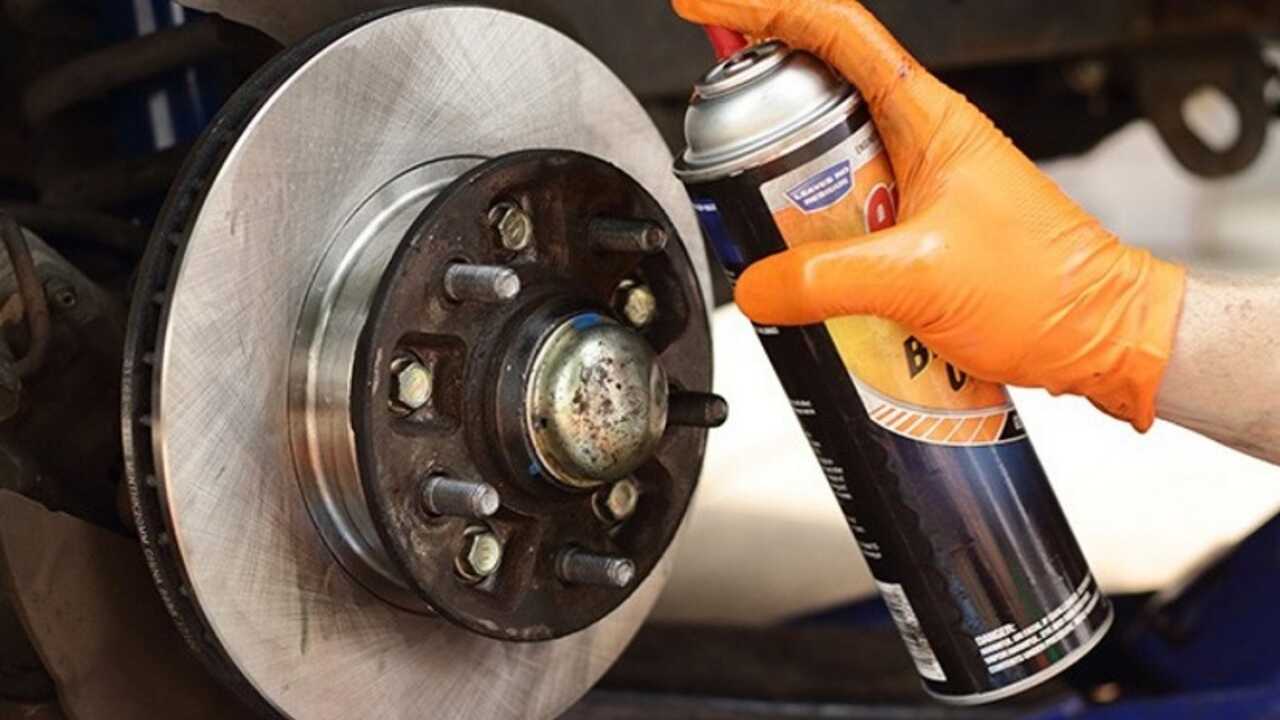
It is not recommended to use WD40 on brake calipers as it can cause damage. (active voice) WD40 is a lubricant and cleaner, but it is not designed for use on braking systems.
The main concern with using WD40 on brake calipers is that it can contaminate the brake pads and rotors, reducing their effectiveness and potentially compromising driving safety. It is best to consult a professional mechanic or refer to the manufacturer’s recommendations for the appropriate products to use when maintaining your brake calipers.
What Are The Alternatives To WD40 For Cleaning Brake Calipers?
While WD-40 can be valuable for many household tasks, you should not spray it directly on brake calipers. The reason for this is that WD-40 is a lubricant that can leave behind an oily residue, which can interfere with your vehicle’s braking performance.
Instead, you can use alternative products specifically designed for cleaning brake calipers. People commonly use brake cleaner or brake parts cleaner as alternatives.
These products are formulated to remove grease, oil, and other contaminants from brake components without leaving any residue. They are generally safe for brake calipers and help keep your brakes in optimal condition. Remember always to follow the instructions provided by the manufacturer when using any cleaning product on your brakes.
How Can I Protect Brake Calipers From Corrosion?
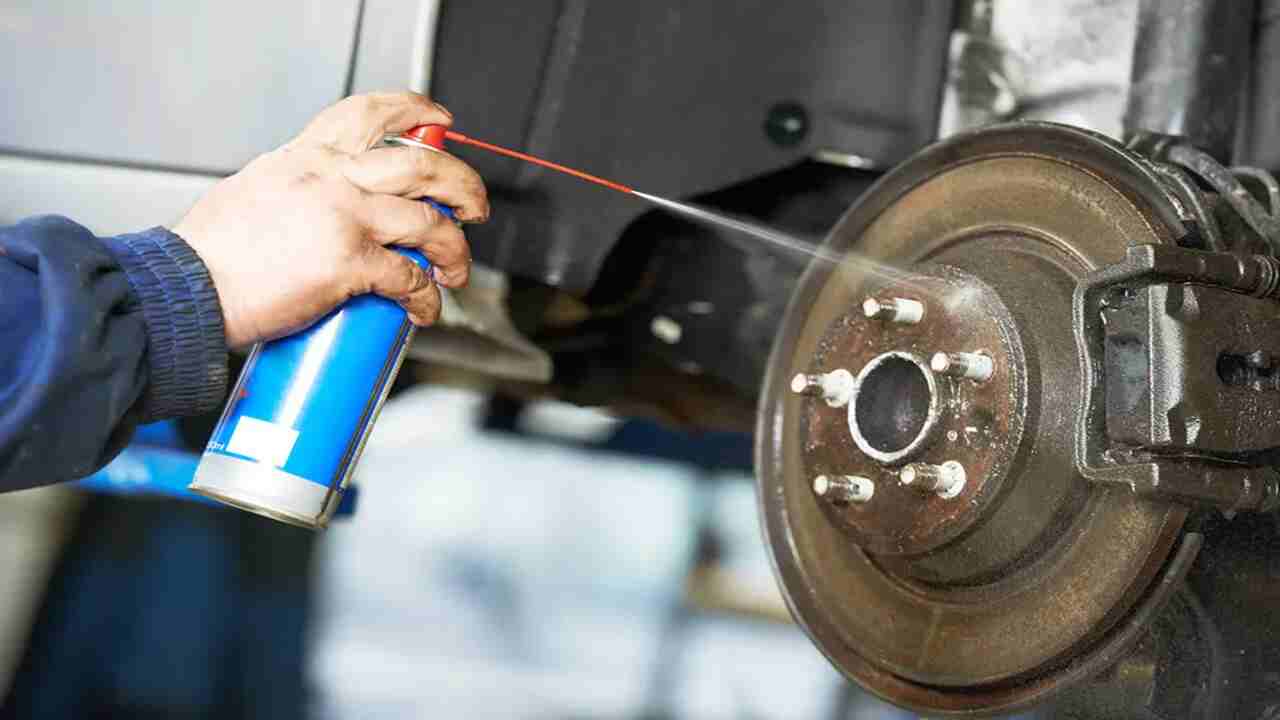
WD-40 may not be the best solution when protecting brake calipers from corrosion. While WD-40 is a versatile product that can be used for many purposes, it has specific designs for use on brake calipers. Spraying WD-40 directly on your brake calipers could lead to brake failure and compromise your safety.
It is essential to use products specifically formulated for automotive use to maintain and protect your brakes. Consult a professional or refer to your vehicle’s manufacturer guidelines for the best methods to protect your brake calipers from corrosion.
What Kind Of Maintenance Do Brake Calipers Need?
Brake calipers are an essential component of a vehicle’s braking system, and they require regular maintenance to ensure optimal performance and safety. A critical aspect of brake caliper maintenance is keeping them clean and debris-free. This can be done using a brake cleaner spray or a mild detergent solution to remove any dirt or grime that may have accumulated on the calipers.
It is essential to avoid using WD-40 or any other lubricant on the brake calipers, as these products can compromise the braking performance and potentially lead to brake failure. Instead, it is recommended to use a high-quality brake grease or silicone-based lubricant on the caliper slide pins and contact points to ensure smooth operation.
Regular inspection of the brake calipers for signs of wear or damage is also crucial, as any issues should be addressed promptly to prevent further damage and maintain the overall safety of the braking system.
What Are The Benefits Of Regularly Maintaining Brake Calipers?
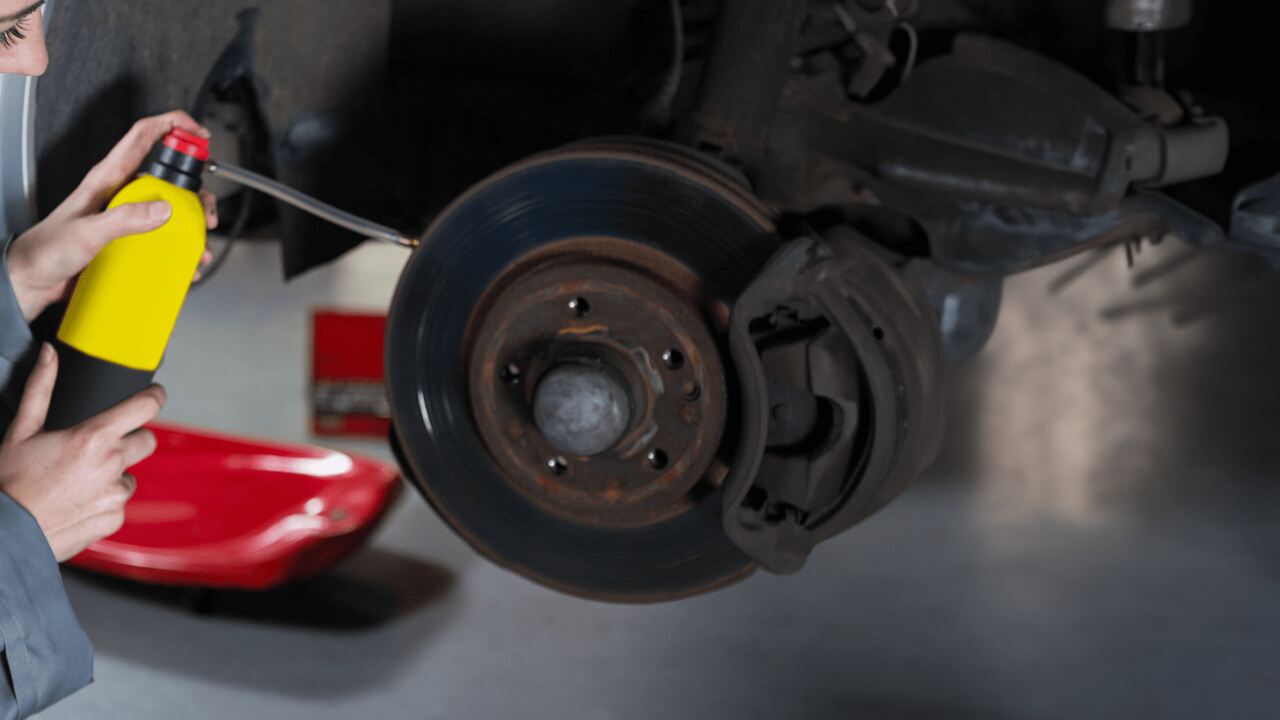
Regularly maintaining brake calipers can benefit your vehicle’s braking system. First and foremost, it helps to ensure the proper functioning of the brakes, which is crucial for your safety on the road. Regularly cleaning and lubricating the calipers with appropriate products like brake cleaner or silicone-based lubricants can prevent rust and corrosion from building up and causing friction or sticking.
This helps to maintain optimal brake performance and responsiveness, reducing the risk of brake failure or uneven braking. Additionally, regular maintenance can extend the lifespan of your brake calipers, saving you money on costly repairs or replacements in the long run. So, by taking the time to maintain your brake calipers properly, you can enjoy smoother and more reliable braking for a safer driving experience.
How To Remove WD-40 From Brake Calipers
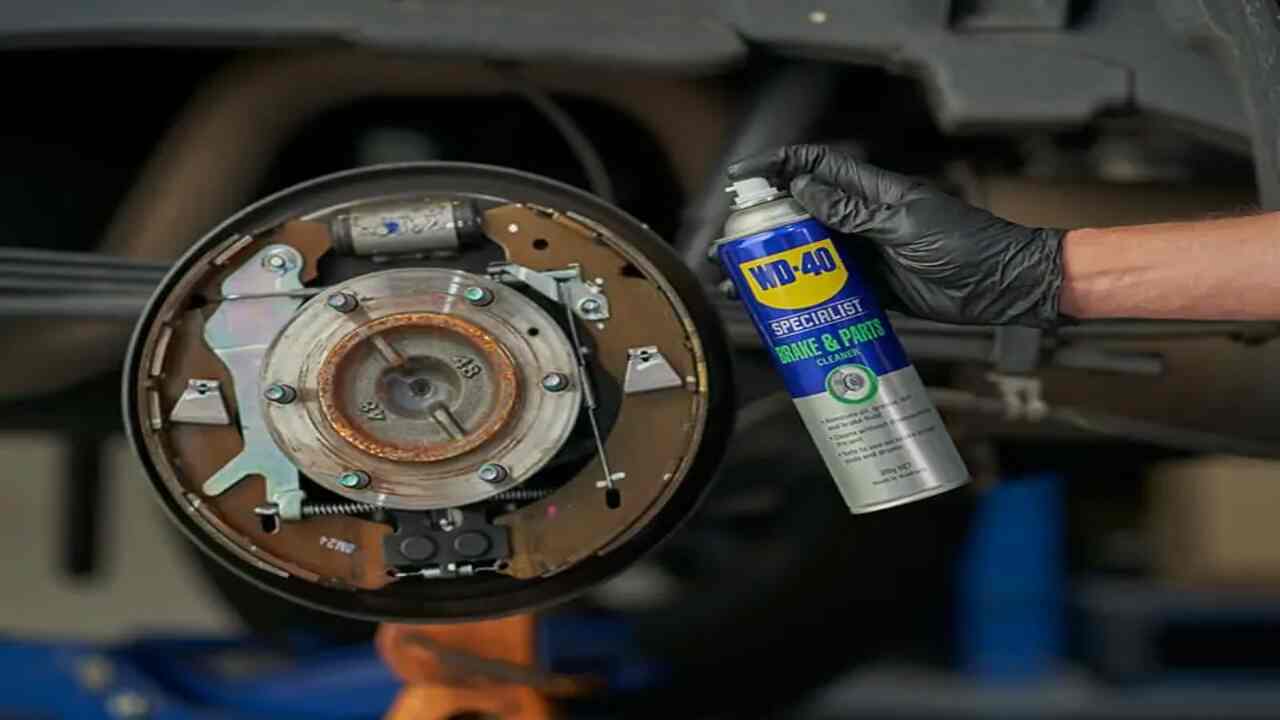
If you accidentally spray WD-40 on your brake calipers, removing it as soon as possible is essential. WD-40 can cause the brake pads to become slippery and reduce their effectiveness, compromising your safety while driving. To remove WD-40 from your brake calipers, start by wiping off as much of the product as possible using a clean cloth or paper towel.
Next, use a degreaser designed for automotive use to clean the affected area thoroughly. Be sure to follow the instructions on the degreaser product carefully. After cleaning, rinse the brake calipers with water to remove any remaining residue. Finally, test your brakes safely to ensure they function correctly before driving.
Conclusion
We do not recommend spraying WD40 on brake calipers as it can lead to potential risks and damage.WD40 has specific designs for cleaning brake calipers and can cause rubber seals and other components to deteriorate. Instead, opt for brake cleaner specifically formulated for cleaning brake parts.
Regular maintenance of brake calipers is essential to ensure their proper functioning and longevity. This includes protecting them from corrosion and keeping them clean. By following the appropriate maintenance practices, you can prolong the life of your brake calipers and ensure optimal braking performance. Remember, safety should always be the top priority for your vehicle’s braking system.
Frequently Asked Questions
1.How Do You Lubricate Brake Calipers?
Ans: To lubricate brake calipers, avoid using WD40 or silicone-based lubricants. Instead, use a high-temperature brake caliper grease. Before applying the oil, clean and inspect the caliper slide pins and boots. Proper lubrication can improve braking performance and prevent premature wear.
2.Where Do You Spray WD40 On Brakes?
Ans: To maintain optimal braking performance, avoiding spraying WD40 directly on your brake calipers or pads is essential. Instead, use a specialized brake lubricant for any necessary lubrication. WD40 can clean brake dust and grime from rims and other wheel assembly parts, but always spray it onto a cloth or rag before wiping down the desired area.
3.Can I Spray WD40 On My Brakes To Stop Squeaking?
Ans: We do not recommend using WD40 on your brakes to stop squeaking. It can reduce friction between brake pads and rotors, making brakes less effective. Instead, try using brake cleaner or replacing worn-out brake pads. Consult a professional mechanic if you’re unsure about proper brake maintenance.
4.What Are The Potential Risks Of Using WD40 On Brake Calipers?
Ans: Using WD40 on brake calipers can have serious consequences. It can contaminate the brake pads and rotors, reducing braking performance or failure. Additionally, WD40 is flammable, posing a fire hazard. It’s best to use products specifically designed for brake components.
5.How Often Should I Clean And Maintain My Brake Calipers?
Ans: We recommend cleaning and maintaining brake calipers at least once a year. However, harsh conditions or heavy loads may require more frequent cleaning. Regular maintenance can prevent brake failure and extend the life of your brakes. Follow the manufacturer’s recommendations for best results.
Meet Allen Yu, the Spray Guru behind Spray Guider. With a passion for transforming rides into rolling works of art, Allen Yu specializes in Bike and Car Sprays. Unleash your vehicle’s potential with expert tips and creative inspiration. Elevate your ride with Allen Yu—because every spray tells a story!
